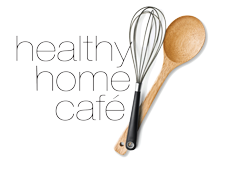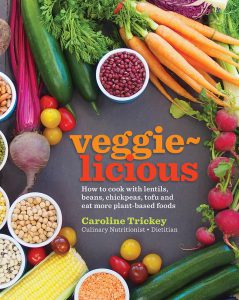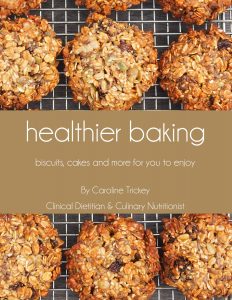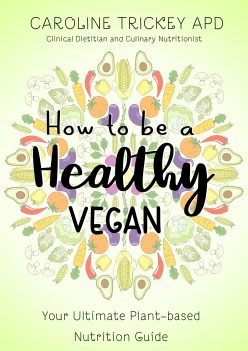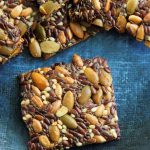What is Hydrogenated Vegetable Oil?
Hydrogenated Vegetable Oil is a source of trans fat
Hydrogenation is a process where hydrogen is added to vegetable oil, which makes the oil less likely to spoil. This process produces trans fats.
Using trans fats in the manufacturing of foods helps foods stay fresh longer, have a longer shelf life, have a less greasy feel and maintain flavour stability.
Scientists aren’t sure exactly why, but the addition of hydrogen to oil increases your cholesterol more than do other types of fats. It’s thought that adding hydrogen to oil makes the oil more difficult to digest, and your body recognizes trans fats as saturated fats.
Trans fat is also produced during the heating and frying of oils at high temperatures
Hydrogenated vegetable oils are…”hugely useful to the industry as they have a shelf-life of years, don’t add unwanted flavour, don’t need to be chilled, and are very cheap, unlike the natural alternative. A chip shop can deep fry in hydrogenated vegetable oil for a month, for example, where vegetable oil must be changed every few days.” (from Trans-Fat: The Time Bomb in Your Food by Maggie Stanfield )
Trans Fat
Trans fat is double trouble for your heart health
Trans fat raises your LDL (often referred to as “bad”) cholesterol and lowers your HDL (referred to as “good”) cholesterol
A high LDL cholesterol level in combination with a low HDL cholesterol level (along with high triglycerides) suggests an increased risk of heart disease, the leading killer of men and women.
If your LDL is too high, over time, it can cause atherosclerosis, a dangerous accumulation of fatty deposits on the walls of your arteries. These deposits — called plaques — can reduce blood flow through your arteries. If the arteries that supply your heart with blood (coronary arteries) are affected, you may have chest pain and other symptoms of coronary artery disease.
If plaques tear or rupture, a blood clot may form — blocking the flow of blood or breaking free and plugging an artery downstream. If blood flow to part of your heart stops, you’ll have a heart attack. If blood flow to part of your brain stops, a stroke occurs.
Trans Fat has also been shown to increase triglyceride levels (another type of fat in your blood), increase VLDL, another type of LDL that really encourages plaque build up in the arteries. Trans fat also appears to damage the cells lining blood vessels, leading to inflammation, further encouraging the formation of fatty blockages in heart blood vessels.
Why do we need to avoid Hydrogenated Vegetable Oil?
Hydrogenated vegetable oil (HVO) elevates health risk to a whole new level. Recent scientific research suggests that it may be responsible for an unknown, but certainly very large, number of heart attacks.
Clinical researchers have discovered that ingesting just two grams a day of HVO – the amount contained in just one doughnut fried in this type of fat – increases an individual’s risk of heart disease by 23 per cent.
This makes HVO much more dangerous to health than the saturated fats such as butter it often replaces.
It distorts cholesterol levels, encourages obesity, causes inflammatory conditions, and can even be a cause of infertility.
Commercial baked goods — such as dry biscuits, sweet biscuits and cakes — and many fried foods, such as doughnuts and french fries — may contain trans fats. Shortenings and some margarines can be high in trans fat.
Reading Food Labels
In Australia, food manufacturers are not required by law to include trans fat on the nutrition information panel. So just because it is not listed does not mean it is not there!
The law does, however state that all pre-packaged foods must have their ingredients listed on the packaging.
If ‘partially hydrogenated’ oil, or ‘hydrogenated’ oil is listed in the ingredients, this may suggest the presence of Trans Fats.
Also, ingredients are listed in decreasing amount, therefore Trans Fat levels are likely to be higher in a product where hydrogenated oil is listed as the first ingredient than a product where it is listed as the last ingredient.
What should you eat?
In a healthy diet, 25 to 35 percent of your total daily calories can come from fat — but saturated fat should account for less than 10 percent of your total daily calories. Aim for consuming less than 7 percent of your fat calories from saturated fat if you have high levels of LDL cholesterol.
Monounsaturated fat — found in olive, peanut and canola oils — is a healthier option than is saturated fat. Nuts, fish and other foods containing unsaturated omega-3 fatty acids are other good choices of foods with monounsaturated fats.
Note: Although small amounts of trans fat occur naturally in some meat and dairy products, it’s the trans fats in processed foods that seem to be more harmful.
Info partly from mayo clinic
This is what America is doing about their trans fat problem…
